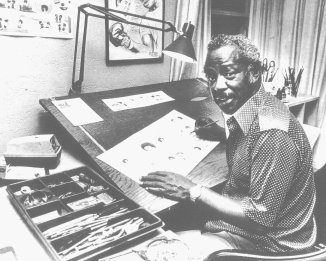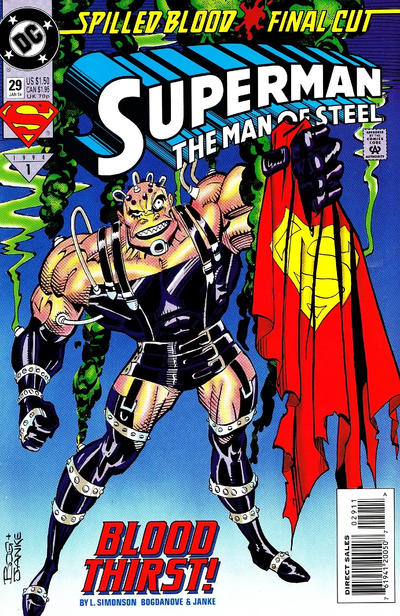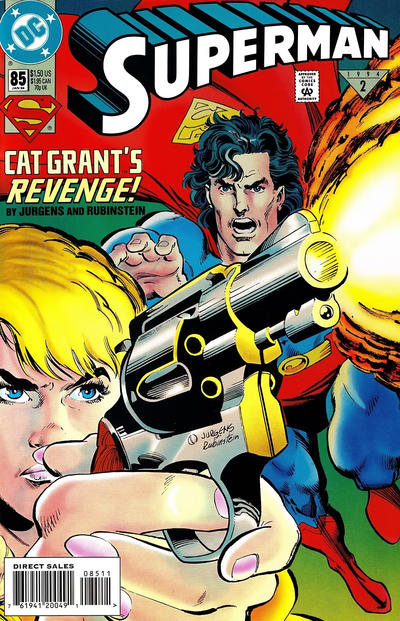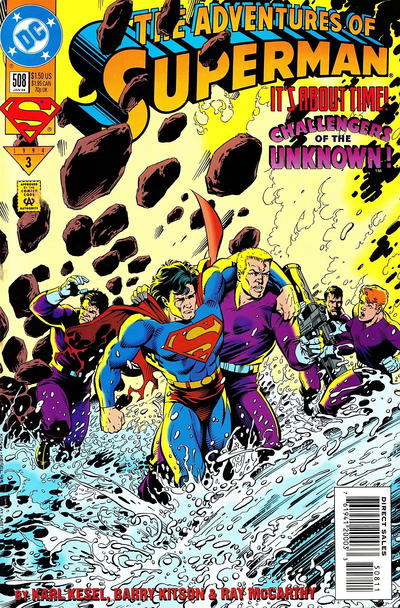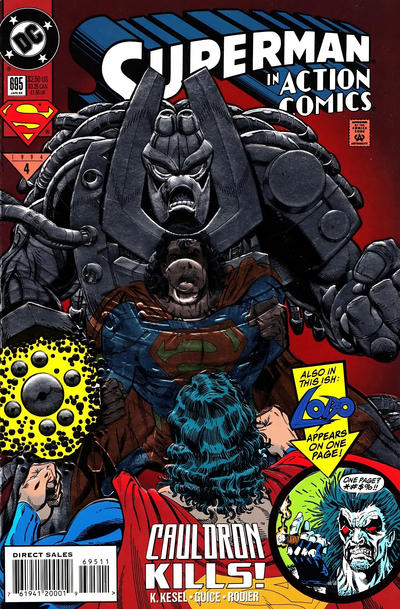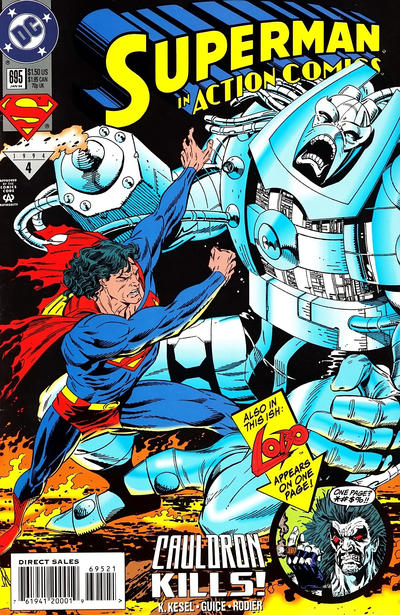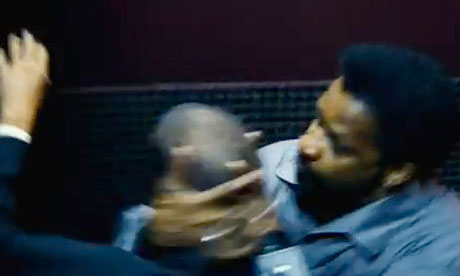was about a singer, played by Vivian, whose daughter, played by Natalie, is starting to show talent of her own which starts causing Vivian’s character to lose out on jobs. She meets a man who wants to represent her daughter and she starts learning to accept her daughter and soon became a popular and successful mother-daughter team. Nobody expected the movie to be popular.
The Monday after it came out, Natalie Parrish was a household name. As Vivian and Natalie walked to the studio to see Leonard, three people came up to Natalie, calling her ‘Baby Galoshes’, the stage name her character had in the movie.
“Why do people keep calling me ‘Baby Galoshes’, Mama? Don’t they know my name is Natalie?” Natalie asked as they continued walking.
“They might but that’s how people identify with you. You’re not Natalie to them but you are Baby Galoshes because you did so well in your movie,” Vivian tried to explain.
Natalie seemed to understand but still had a blank look on her face. They got to the studio where more people—both tourists and fellow actors—came up to her. Vivian took her hand and began walking faster, practically dragging Natalie behind her.
When they got to Leonard’s office, he was beaming from ear to ear. “I am so glad you two could make it today. This is a big day for both of you!” Leonard motioned to the chairs in front of his desk. “Please have a seat.”
“Leonard, what’s going on?” Vivian asked as she sat down.
Leonard sat down. “We want to do a series of Baby Galoshes films starring Natalie. In case you haven’t noticed, Natalie has become an overnight sensation.”
“I thought something was a little odd on our way over,” Vivian said to herself. “How many movies are we talking about?”
“As many as the public will pay for. We would like one or two a year with a holiday themed one every two to three years.”
“She may be working year-round. She needs to go to school and be around children her own age,” Vivian said.
“We can work around her schedule. It’ll be no problem,” Leonard said.
“Give us the week to think about it. This is a big decision for both of us to make.”
“I bet Natalie would love to make more movies and entertain people,” Leonard smiled, looking right at Natalie.
“Yeah!” Natalie squealed.
“I’m sure she would, Leonard, but she is five-years-old and can’t make this kind of decision on her own,” Vivian stood up, grabbing Natalie’s arm. “We’ll let you know at the end of the week.”
Vivian and Natalie left the office. “I want to make more movies, Mama,” Natalie said.
“I know, sweetie, but this is a big decision. It’s a lot of work and you could be typecast doing just one character. And with a name like ‘Baby Galoshes,’ it could ruin your career,” Vivian huffed.
The Baby Galoshes franchise had spanned four years and seven movies. Natalie was known around the world and had grown from a precocious 5-year-old to a rather mature 9-year-old. While Baby Galoshes was a household name, people didn’t know who Natalie was. To the world she was only Baby Galoshes.
The series had undergone many changes over the last four years. The first two movies starred Vivian and Natalie as mother and daughter. Vivian’s character was killed off and it became a story of a young star and her stepfather for the next two movies until they, for an unexplained reason, became about a talented orphan. The most recent movie changed the plot again to an orphan star now in the charge of her maternal grandparents played by Rita Carlyle and Frank Sheridan. All the performances were praised but everyone agreed that the Baby Galoshes series had run its course.
“What do we do now?” Vivian asked Leonard.
“What are you talking about?” he asked.
“Where does Natalie go from here?”
“She can still audition for movies with the studio. However, her time as Baby Galoshes has embedded that image into the public’s heads.”
“Just like I knew it would,” Vivian sighed.
After Vivian’s character was killed off in the third Baby Galoshes movie, she had become a manager and agent to Natalie. Vivian made sure she was treated fairly and that she went to school and still had time to be a kid.
“I heard a rumor of a movie being produced about a girl who lives in the shadow of her talented sister,” Vivian said.
“Mm-hmm,” Leonard nodded. “We’ll be starting production soon but Natalie is a bit older than we were planning on.”
“But she could be the older sister.”
“The older sister doesn’t sing or dance.”
“She doesn’t need to. Natalie wants to be an actress and I’m going to make sure that she accomplishes that.”
Leonard nodded again. “Auditions will be held in the next month. We’ll get a script sent over to her and tell Natalie ‘good luck’ for me.”
“Why are they talking bad about me, Mama?” Natalie asked Vivian during breakfast after reading a review of her new movie in the newspaper.
“You shouldn’t be reading those reviews, Natty,” Vivian said with a sigh and taking the newspaper away from Natalie. “People expected you to sing and dance in your movie and when you didn’t, they just got a little upset.”
“Was I supposed to sing and dance? Why didn’t they like me?”
“It’s just what they expected. Because of Baby Galoshes. Don’t worry about it. It’ll just take people a little longer to understand that you aren’t a singer or dancer anymore.”
1937
5.
MARY
Tell Colin that I can’t come and see him yet.
MARTHA
[distraught]
That’ll put all the humor out him if I tell him that, Miss Mary.
MARY
I can’t stay. Dickon is waiting for me. I’ll visit him later.
MARY runs away from MARTHA down the path to the garden. Nearly all of the weeds were cleared out and most of the roses and trees had been pruned or dug about. DICKON was already working when MARY arrived.
DICKON
[not looking up]
There’ll be apple blossoms an’ cherry blossoms overhead. An’ peach an’ plum trees in bloom against the wall, an’ grass’ll be a carpet o’ flowers.
Montage of MARY and DICKON working in the garden along with scenes of animals and birds in the garden. Tiny foxes run around, birds flitter about and robins fly down to observe MARY and DICKON. Squirrels also come up and MARY and DICKON feed them nuts and seeds. Soon, DICKON sits down with his pipe and MARY joins him.
DICKON
This is looking very different. Even you are changing, just like the garden.
MARY
I’m getting fatter and fatter. Mrs. Medlock will have to get me some bigger dresses. Martha says my hair is getting thicker and not so flat and stringy.
The sun begins to set.
DICKON
I’ll be at work by sunrise.
MARY
So will I.
MARY runs back to the house. When she opens the door to her room, she sees MARTHA waiting for her with a doleful face.
MARY
What’s wrong? What did Colin say when you told him I called come?
MARTHA
I wish you’da gone. He was nigh going into one o’ his tantrums. There was nothing we could do to keep him quiet. He would watch the clock all afternoon.
MARY purses her lips and a look of anger comes on her face. She angrily leaves her room, storming off to COLIN’s room. When she gets to his room, COLIN is lying in bed, on his back and doesn’t even move to acknowledge MARY.
MARY
Why didn’t you get up today?
COLIN
I did. When I thought you were coming. I made them put me back in my bed this afternoon. My back ached and my head ached and I was tired. Why didn’t you come?
MARY
I was in the garden with Dickon.
COLIN
I won’t let that boy come here if you go and stay with him instead of coming to talk to me.
MARY
If you do that, I will never come in this room again.
COLIN
You’ll have to if I want you.
MARY
I won’t!
COLIN
I’ll make you! I’ll have them drag you in!
MARY
They may drag me but they can’t make me talk! I’ll clench my teeth and just sit there and never tell you one thing! I won’t even look at you. I’ll stare at the floor.
MARY and COLIN stare at each other intensely, glaring and fuming.
COLIN
You are a selfish thing!
MARY
Then what are you? Selfish people always say that. You’re more selfish than I am. You’re the most selfish boy I ever saw.
COLIN
I’m not as selfish as your fine Dickon is! He keeps you playing in dirt when he knows I am all by myself! He’s selfish!
MARY gets angrier and takes a couple steps toward COLIN.
MARY
He’s not! He’s the most unselfish boy I know. He’s…He’s like an angel.
Frances Hodgson Burnett’s The Secret Garden, the story of a spoiled young girl who learns of a garden at her uncle’s manor when she is sent to live there after her parents die, wasn’t supposed to be anything special but somehow became the most talked about film of 1937. Natalie was soon in high demand with nearly all the producers and directors at National wanting her and the public wondering what her next role would be.
6.
“This could be a very controversial role, Vivian. Are you sure Natalie is up for it?” Leonard asked.
“Definitely,” Vivian answered. “She seems to have a natural talent for drama and we need to make sure that talent is being utilized. Also, we need to see what she can really do.”
Leonard sighed. “All right, Vivian. Guthrie will be ecstatic that Natalie is on board.”
The movie was called
Tumbleweeds and was to be directed by Guthrie O’Dowd and was a western set in the 1850s. Natalie starred as Emma Anderson, whose father is killed and homestead burned by John Custer, a notorious criminal. Emma hires George Jefferson Armstrong to hunt down and kill Custer and the two travel around the west searching for him and getting into additional trouble because of Armstrong’s temper and reputation.
The movie featured lots of killing and, unlike most westerns at the time, was aimed toward adults. Scenes of Emma brandishing and using a gun during a shootout were discussed, scenes of Emma and Armstrong sharing a bed were cut and refilmed to show them in separate bedrooms or on opposite sides of a campfire circle. In the end, the movie did very poorly. Guthrie was let go from National and Natalie was released from the holiday movie she was scheduled to be in. Soon, people calling her to be in their movie stopped and Natalie was let go from her contract with National, her last on-screen appearance being in a “Two Goofs” short subject in 1938.
1940
7.
One of the biggest names in Hollywood in 1940 was Jimmy Hicks. Jimmy’s first movie made him a star and his next movie proved that he deserved the stardom. In 1939, Jimmy was nominated for an Academy Award for his role as Billy Lasker in
Eyewitness. In it, Billy witnesses the murder of a young doctor but a black man is accused and tried instead. And even when Billy confesses to what he saw, people don’t believe him because Billy’s father is defending the black man in court.
Eyewitness was very well-received and offered topical conversations on many things.
Jimmy was also a part of the Tawney Family series of movies, the third one of which was going to start filming in another three months.
As Jimmy left one of the studios, Natalie ran up to him and introduced herself. “Jimmy Hicks? I’m Natalie Parrish; I used to be Baby Galoshes.”
“I remember those. They’re a nice little escape from thinking,” Jimmy said.
“Thank you. The reason I want to talk to you is that I know the next Tawney Family movie is about to start filming and the role of a possible love interest for your character hasn’t been cast yet.”
“Yep.”
“I was wondering if I could audition and if you like my performance, you could put in a good word for me for the role.”
“Yeah, I could do that. Can you come by my hotel room at about eight tonight?” Jimmy asked. “You can read some lines and see where we can go from there.”
“Of course! I’ll be there at eight on the dot,” Natalie exclaimed.
Natalie arrived about five minutes before eight. Jimmy answered the door wearing a robe. Despite Jimmy being Natalie’s age, he was pretty much left to his own devices.
“So glad you could make it,” Jimmy invited her in. “I selected a couple of scenes I thought would best represent the character you are trying out for.”
“Great. I really appreciate you doing this,” Natalie said.
“No problem at all. I know how rough it can be out there,” Jimmy smiled. “Please sit down and we can begin.” Jimmy handed Natalie a script and motioned Natalie to the couch.
The role was for the coveted part of Laura Blackburn, a tomboy who starts out as Jimmy’s rival which soon grows into a relationship. The role had a possibility of being in subsequent movies, as well.
Natalie and Jimmy read a couple of scenes together and talked about their lives and careers for several hours until a clock somewhere in the hotel room chimed midnight.
“Midnight? I should go,” Natalie said. She stood up and sat her script on the table.
“Natalie,” Jimmy stood up quickly and grabbed her shoulder. “How badly do you want this role?”
“I would do almost anything for it. I want to get back into making movies,” Natalie said, getting a catch in her throat.
“Go to bed with me tonight and I can guarantee you the role of Laura,” Jimmy said.
Natalie smiled and blushed, looking away from Jimmy. “Jimmy, we’re only fifteen…”
“You would be perfect for the role, Natalie,” Jimmy said. “But the producers are going to be looking for a girl that will have chemistry with me. If we sleep together then you have more chemistry with me than any other girl who auditions.”
Natalie thought about that but still shook her head. “I don’t know if that’s something I want to do. I’m still a virgin and do I really want to use my first time to try to get a job?”
“A job that could change your life,” Jimmy said.
Natalie thought about it again and then she looked up at Jimmy.
She woke up the next morning naked and in Jimmy’s hotel bed alone. There was a note on the bedside table ‘Make yourself at home.’ Natalie smiled and got out of bed, throwing on one of Jimmy’s robes to cover her even though her clothes were in a pile next to the bed. She walked out to the kitchen nook where some coffee had been made and a copy of “Variety” was laid out. She poured herself a cup and glanced at the paper. She noticed a small article on the new Tawney Family movie.
3rd Tawney Family to Start Filming Next Month
‘The third movie in the successful Tawney Family franchise starring Jimmy Hicks and Robert Acarta will begin filming next month after a long search for an actress to play new character and love interest for Hicks was finally concluded with the hiring of Sasha Marco as Laura Blackburn.’
Natalie gasped when she read the part had already been cast. She threw the paper down, stormed back into the bedroom dropping her robe and getting dressed. She stormed out of the hotel room and headed back home.
1949
8.
As Natalie’s career fell, Vivian’s picked up slightly as she began being cast as side characters. The characters weren’t important to the story nor did they move the plot along but Vivian was proud of them because it brought in a paycheck and kept her in front of the camera. Vivian had done a fairly decent job at managing and saving the money Natalie had made making movies but Natalie hadn’t worked since 1939 and the money was being spent quickly.
These days, Natalie spent her days sleeping and her nights imbibing in many drugs and lots of alcohol and sleeping around. She hadn’t auditioned for anything since 1946 because “What’s the point of auditioning if they aren’t even going to consider me?”
“You need to keep trying, Nattie. You’ll find something. Maybe you need to audition for smaller roles,” Vivian suggested.
“Because it’s worked out so well for you the last couple of years,” Natalie rolled her eyes.
“At least I’m working and making money, unlike you. Why don’t you audition for one of the many television pilots networks are creating?” Vivian suggested again.
“Television? I’m a movie star, Mama. Television will never have the respect that movies have and I want respect!”
“You’re not going to get a lot respect with those needle marks on your arms and being arrested for marijuana possession and getting back-alley abortions!” Vivian said reducing Natalie’s last five years to one sentence.
“You’re just jealous of me. You’re mad at me because when I became a star, you became unpopular!” Natalie snarled.
“I was famous before you were even born, little girl, and I stopped being famous because I wanted to make sure you were taken care of both monetarily and emotionally. If you’re so famous then how come I’m going to the set today and you’re going to sleep all afternoon?”
Natalie screamed breathily and stormed down the hallway to her room, slamming the door. Vivian walked to Natalie’s bedroom door.
“CBS is holding auditions for two new television shows today if you want to go. I’ll be home about six.”
Vivian got home at about six but Natalie was gone. She had left for the house of Dionne Holliday. Dionne made one movie in 1942 and had been strung out ever since. The money she made was long gone and Dionne had made a living essentially whoring out her body and selling drugs. Natalie met Dionne at an audition and became fast friends, mainly because of the way they both thought they were being jerked around by Hollywood.
The inside of Dionne’s house was pretty trashed with the carpet being torn in places, cigarette butts and liquor bottles strewn around the rooms. There were holes in the wall and most of the light fixtures didn’t work because the bulbs were either blown out or broken.
Natalie stood, fairly unbalanced, against the wall across from the bathroom door as she waited for Dionne to pee.
“TV. She wants me to audition for TV,” Natalie said in disgust. “I’d rather stab a needle into my eye.”
“I’ve been to TV auditions. All these people who’ve never acted before or washed-up Vaudevillians, they’re taking jobs away from real actors like you and me,” Dionne said from the bathroom and then came out. “And what’s scary is that when TV goes away, all the actors,” she said derogatorily, “will think they are entitled to be cast in movies. It’s just a load of bullshit.”
Natalie nodded. “My mom just doesn’t understand me. Since I was two, no three…two? I’ve wanted to act and entertain people…in movies! What’s the point of spending all that time and effort learning lines, stage cues and articulation if I’m going to get paid squat for it? TV isn’t going to pay as much.”
“Mm-hmm,” Dionne agreed. “I have a guy coming over here who wants to meet you.”
“What? Really?”
“Yeah. He’s always been fan of yours. He’s hoping that you and he will really hit it off. He even said that he’d be willing to pay for it.”
“I’m no whore,” Natalie giggled.
“He’s asked that if you two do hit it off that you wear these,” Dionne opened a closet and pulled out a pair of red galoshes. “And that you call him ‘Daddy.’”
Natalie laughed. “I’d be glad to,” and she took the boots from Dionne.
1951
9.
Carrie Hall had been trying since 1949 to get a show she created on the air. Since 1947, Hall provided the voice for the character Lizzie Pugh on the radio show
Wife in Love. Carrie had written several scripts for a new TV show called
The Newlyweds about Carl and Madelyn Allison who have just gotten married and moved into a small apartment in New York City. Their neighbors were Thomas and Anna Barnett, an older couple married for nearly 30 years. It took a lot of prodding to get a network to take a chance on it but NBC agreed and commissioned a pilot in March 1951 and the series to begin in September.
The phone in the Parrish household rang loudly. Natalie was asleep upstairs so Vivian had to run to answer it. “Hello?” she answered.
“Is this Vivian Parrish?”
“This is her,” she replied.
“I saw that you auditioned for the role of Anna Barnett in
The Newlyweds. Is this the same Vivian Parrish who was in silent films and the first two Baby Galoshes movies?”
“Yes…”
“Oh, I love those movies and I love you. This is Carrie Hall, star and producer of
The Newlyweds. I would be honored to offer you the role of Anna if you still want it.”
“Really? That would be great!”
“It’s going to be great working with you. I’ll see you at the studio at nine on the twelfth.”
Vivian hung up the phone. “Thank God,” she said quietly and started to cry.
Life on the set of
The Newlyweds was very jovial and the best part was that everybody got along with everybody else. Carrie’s husband was played by Brent Osmond and Vivian’s played by William Tuckfield, who was ten years older than her but she didn’t care. William was a kind man who drank a little too much and gambled a bit too often but he never let that get in the way of work.
The first shot of
The Newlyweds was Brent carrying Carrie over the threshold of their apartment. The studio audience was instructed to applaud loud and long during this. The image is now one of the most famous in TV history.
Everyone was nervous for the first five or so episodes as they waited to see what the ratings said about their show. After a rehearsal, Vivian went to her dressing room, sat down at her makeup table and placed her face in her hands. There was a soft knock on the door. “Come in,” Vivian said softly.
Carrie came into the dressing room. “Are you doing okay, Viv?” she asked. “You seemed a bit shaky during that last scene.”
“I’m fine. I’m just a bit nervous.”
“Nervous about what?” Carrie asked as she sat down next to Vivian.
“The show. I’m worried how it will be perceived and the ratings and just what will I do if the show doesn’t last.”
“Let me let you in on a little secret,” Carrie smiled. “The network loves the show. The advertisers love the show. And based on the preliminary ratings that landed in my office yesterday, America loves the show. We have thirty-three episodes to film this season and another thirty-three after that and another after that and probably another after that.”
Vivian smiled. “That’s good to hear. Thanks again for letting me be a part of this.”
“My pleasure. And remember, if that daughter of yours ever comes to her senses, I think we can squeeze in a couple of guest posts for her.”
“I’ll let her know again but she is adamantly against television,” Vivian reminded.
“Give her awhile. She’ll come around.”
1958
10.
“There’s really no way around it,” Gordon Deckel, the president of the network said to Carrie and the three other producers. “We’re going to have to write them out of the show.”
Seven seasons
The Newlyweds had been on television. It was still at the top of the ratings and had made each of the four leads a star and a decent amount of money. After the show had wrapped for its seventh season, William had a heart attack while walking along Hollywood Boulevard. He was declared dead at the scene. His funeral was well attended by stars past and present along with family and fans. Shortly after the funeral, the network began wondering how to proceed with the show.
“The show’s been on for seven years. Brent and Carrie are not exactly newlyweds now so we can write out William and Vivian, introduce a new newlywed couple who can become new friends,” said one of the producers.
“Absolutely not,” Carrie said. “Why are we punishing Vivian? She’s been nothing but loyal to the show and the network. Why can’t we write William’s death into the show? We can still introduce the new couple but Anna—Vivian—could become the person everyone goes to for solving marital troubles.”
“I don’t think our viewers want to watch an episode about death,” Gordon said.
“One episode mentioning it isn’t going to hurt. Viewers loved William and they’d want to be there for the characters,” Carrie said.
“No,” Gordon shook his head. “We aren’t going to do that.”
“Then I quit,” Carrie sat back and crossed her arms.
“You can’t do that.”
“I can, actually. It’s in my contract that as star and producer, I can pull the plug on the series at any time. Vivian continues to be a part of the show or I quit.”
The season premiere focused on the cast after the funeral for William’s character. The episode basically became a clip show showcasing William’s best moments. It was the only episode not filmed in front of a studio audience and filming had to be halted a lot due to the cast constantly crying. The second episode introduced the new newlywed couple, the Clarks. Natalie was moved to the short list on being cast as Katherine Clark.
“You need to audition for this, Natty,” Vivian said to her daughter who hadn’t appeared in front of the camera in nearly two decades. “
The Newlyweds has been on the air for seven years. Carrie likes me and she likes you enough that if you audition she can automatically move you to the short list.”
“Fine!” Natalie growled. “I will audition but just like every other role I’ve auditioned for, I probably won’t get it!”
“You won’t know until you try,” Vivian said. “I want what’s best for you but you have to meet me halfway sometimes.”
The next day, Natalie went to audition for
The Newlyweds. The audition went very well and Natalie, along with three other actresses were called back the next day where the producers would make their decision. Natalie missed the second audition. After doing so well, she decided to celebrate with Dionne. While she promised herself to leave early and not get too strung out, she wound up going to a hotel with some guy, doing lines, having sex and passing out about three in the morning. She woke up naked, parts of her face, breasts and genital were caked in semen, blood and urine and she noticed that she wet herself this morning. She groaned and looked at the clock.
“One fifteen,” she said aloud. Her second audition was at nine. “Shit,” she groaned again and collapsed back into bed.
1962, 1968
11.
The last episode of
The Newlyweds was just like any other episode. Long feeling that the name of the show no longer applied—especially after the introduction of a daughter in 1958 and a son for the Clarks in 1961, Carrie decided to end the show.
The Newlyweds went out on top and the cast was honored with a standing ovation as they took their final bow.
Vivian was now 56, twice nominated for an Emmy with a slew of offers coming in for work on other TV shows. After production wrapped, Vivian and the other cast members stayed backstage talking. “Have I
thanked you yet for giving me this opportunity yet, Carrie?” Vivian laughed.
“Many times. And it was a pleasure working with you all these years. If I ever need your skills again, I’ll be sure to hunt you down,” Carrie smiled.
“Vivian?” a man came backstage. He was a stocky man with a tweed suit and a comb-over.
“Al! What are you doing here?” Al Frazier was an agent Vivian hired in 1959 when Carrie originally toyed with the idea of ending The Newlyweds. Al became a big help in landing commercials, radio spots and guest
appearances and became one of her closest friends.
“I have some news for you, Viv,” he said, rubbing the back of his neck. “Can I speak to you alone? In private?”
They stepped out into an alleyway. “What do you have to tell me? Why the secrecy?”
“Las Vegas police found Natalie dead…” Al said with a big sigh.
“No. That’s impossible,” Vivian said but she knew.
Natalie had disappeared about two weeks ago which was something she had started to do since her Newlyweds audition. Vivian never knew what she did or where she went but she had ideas and heard stories.
“She was found in a motel outside Las Vegas,” Al continued as Vivian started to shake. “And this is why I wanted to tell you in private; the police believe she went there to get an abortion, something went wrong and…”
“No. Natalie’s had an abortion before but that was eight years ago? Or maybe it was…”
“Viv. They found her naked on the floor in a pool of her own blood. A medical book and surgical equipment were nearby. Police think whoever was performing the abortion realized something was wrong and ran off.”
“They’re sure it’s her?” she was starting to cry now.
Al nodded slightly.
“I want to see her,” Vivian sniffed.
“Viv, she’s in Las Vegas for the autopsy…” he paused to look at her. “Come with me. I’ll drive.”
The Natalie Parrish Clinic opened about a year after Natalie died. It was originally started to help child actors cope with being themselves, actors and children and to get their substance abuse under control if needed but it soon grew to help all children no matter the background or income.
In the clinic was a room where Natalie’s story was told from her first role to Baby Galoshes to The Secret Garden to her unfortunate death. It was incredibly detailed and used for the clinic’s tough cases. It even featured a photo the police took in the hotel where Natalie died showing her naked and dead in the pool of her blood.
“I want to make sure that no other child goes through what Natalie did and not just the children of Hollywood but all children,” Vivian said in an interview. “I take a lot of the blame for not establishing boundaries or working harder on getting Natalie roles but we needed money and if she wasn’t working, someone had to. I’m just glad she’s at peace and I hope I can find peace and forgiveness with the clinic.”
A year after the interview, Vivian was sitting in her office when her phone rang. “Hello?” she answered.
“Vivian, this is Carrie. How are you doing?”
“Carrie! It’s been forever. I’m doing well. Really well actually. The clinic is doing great and I know you are doing good. Seven television show on the air all being produced by you. Very busy woman.”
“Soon to be eight,” Carrie laughed. “That’s actually why I called you. I want to offer you the part of Caroline Freeman’s mom in
All of Us.”
“What’s it about?” asked Vivian.
“It’s about a blended family. A woman who’s widowed remarries to a man who is also widowed and they each have three kids. The mom, you, moves in to help the new couple raise their six children.”
“That sounds interesting. Yeah, I can come in for an audition.”
“No, no. No audition. The part is yours. The cast is great, wonderful kids. The network has complete faith in the show which is why we’re being fast tracked,” Carrie explained. “So…will we see you Monday?”
On Monday, the entire cast met backstage in the sound stage along with a couple of writers and producers including Carrie. “I think a couple of you met during auditions but let’s go around and formally introduce each other,” she said. “I’m Carrie Hall, creator and producer.”
“I’m Robert Gleeson; I’ll be playing Scott Reed.”
“I’m Caroline Freeman; I’ll be playing Lois Reed.”
“Jack Jacobs, Michael Reed.”
“Dana Thomas, Lily Reed.”
“Michael Hanscomb, Oliver Reed.”
“Julia Reeves, Lucy Reed.”
“Valerie Gammill, Winnie Reed.”
“Matt Linklater, Eric Reed.”
Vivian looked at the six actors and actresses set to play her grandchildren. Jack was a handsome young man of about 15 with curly black hair. Dana had light brown hair and looked about 13 in age. Michael and Julia were the same age, 11, but Julia had red hair which was vastly different compared to who would be playing her brothers and sisters. Valerie and Matt were the two youngest at 5 and 7 respectively. Matt’s hair was starting to turn from blond to a dirty blond while Valerie’s hair was still a bright, illuminated yellow. She smiled and got teary-eyed as she introduced herself. “Vivian Parrish, I will be playing Grandma Rose.”
A small commotion ensued before Carrie interrupted. “All right, let’s head into the conference room for a read-through.”
The cast dispersed and followed Carrie even further backstage. Dana walked over to Vivian and spoke, “Ms. Parrish? You probably don’t remember me. I’m Dana Thomas.”
“Please, call me Vivian.”
“Okay, Vivian. I just wanted to thank you for your program. You know, the one named after your daughter.”
“You…were at the clinic?” Vivian was taken aback. Dana was young but Vivian knew there had been kids as young as eight admitted to the clinic.”
“I’m now six months clean and feel in a good place. I couldn’t have done it without your clinic.”
“That is so nice to hear. After the kids leave, you never really know what happens to them unless it’s really good or really…bad.”
“Again, I just wanted to thank you and I look forward to working with you,” Dana said.
“I look forward to working with you, too. All of you,” Vivian said smiled.
“All of us,” Valerie joked and everybody laughed.



